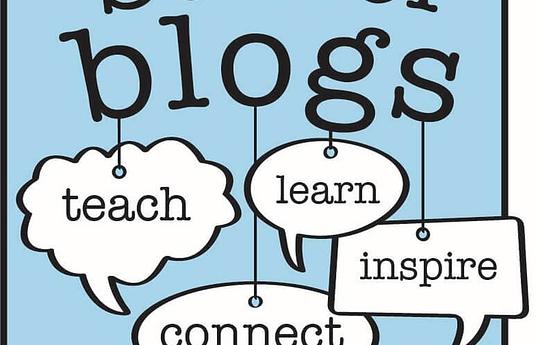Should we be teaching children and young adults about how to brand themselves online? A recent Kaplan survey has found that both admissions staff and university applicants agree that social media is ‘fair game’ when it comes to assessing whether they should be accepted into a university. This can have huge implications when it comes to young people’s futures, so surely schools should be educating young people on how they might present themselves online?
We place so much importance on grades, personal statements and interviews – that we forget that now we are all being judged by what we share online. This isn’t just a university applications issue, how you appear online can affect what job you get – or don’t get. Do we all need to think more carefully about our own personal branding?
Although most young people actually wouldn’t care if social media didn’t exist, the fact is that it does. Undoubtedly, we’ve all looked someone up to see what they’re like before making an informed opinion on them, whether it be for social, professional or dating purposes. It’s quickly becoming just a part of our culture.
The recent survey revealed that 68% of colleges thought it was fair to look at student’s Facebook, Twitter and Instagram accounts when considering their admissions, with a whopping 70% of students agreeing.
Perhaps this isn’t that big a deal, but when you consider that one in ten admissions staff surveyed admitted that they had reversed their decision on a student due to their social media presence – revoking the offer they were going to make them – all of a sudden it becomes apparent just how important it is for young people to present themselves in a way that both fits with their own freedom of expression whilst supporting the life they want for themselves in terms of further education and careers.
When you learn that tech founding fathers Steve Jobs and Bill Gates limited the presence of tech in their own children’s lives, we really should all be sitting up and paying attention.
"
Although the importance of our social media profiles won’t be outstripping grades or experience anytime soon, it can’t hurt to get young people social media savvy.
At New Technology High School in California, students are taught to use social media appropriately and to write their own blogs in order to create a positive and beneficial digital presence. At the school, students also use social media to connect with experts and communities in areas that interest them, which can further their knowledge on a subject area and even lead to internships and jobs!
Through learning how social media plays a part in career-building, students become aware of how their digital presence can influence not just their social lives but their professional lives too. Hopefully, through incorporating digital media into the school day, students who would otherwise post inappropriate or damaging things are prevented from doing so because they’ve been adequately educated in digital media.
Of course it’s not all just about admissions and careers, learning how to be online and how to appropriately communicate is important for every area of our lives.
PenPal Schools link together students from around the world to work on projects together. Through connecting online, students learn to collaborate and communicate in a real way that is aligned to the technology they use in their daily lives. Through the projects, students can learn beneficial ways of collaborating with people all over the globe, building their digital social skills, problem-solving and academic skills. Penpal Schools was even recognized by President Obama himself – not too shabby.
Recent studies have found that teenagers in the US are more likely to die from suicide than homicide, and that teen suicides are at a two decade high. The cause of the sudden increase in poor mental health and suicide in teens is being linked to technology in general and smartphones and social media in particular.
When you learn that tech founding fathers Steve Jobs and Bill Gates limited the presence of tech in their own children’s lives, we really should all be sitting up and paying attention. If those responsible for the boom of technology don’t want their kids on it all the time, we definitely shouldn’t allow for our kids to be put in danger of developing a digital addiction.
Because that’s what this is. An addiction. Social media, as we all know, can have some positives, but the longer you spend on it the worse you feel. There’s even strong arguments put forward that suggest that it’s been built to be addictive. The ‘Like’ button for instance, gives us a tiny moment of happiness as we receive social feedback and validation from our followers who’ve liked our post, but it’s not a satisfying amount. Therefore, we keep coming back for more and more, turning this unhealthy psychological experience (and social media in general) into an addiction as we’re unable to stop ourselves from returning to social media platforms in a bid to be validated by our peers.
There are solutions, however. And just as the problem originated in tech, the answer can come from tech too. MeeTwo is an app where children can safely talk about their mental health problems and receive crucial support. Users can post anonymously about what they’re experiencing and can post in short pieces, longer written pieces or photography to express how they feel. They are then able to receive responses from others who sympathize or are experiencing similar problems to them as well as gain expert advice.
In order to keep trolls at bay and to keep the app a completely safe space, everything that is posted on the app is pre-moderated making sure that nothing is published without consent from the MeeTwo team. Unlike other message boards, if your post is declined publication, the MeeTwo team sends a message explaining why your post has been rejected and help you to write it in a more appropriate way, teaching the user how to communicate effectively online. This keeps bullying and harassment at bay, and users say they feel supported and safe in the online environment. It was also built to be similar to the social media platforms that teens are already using in order for the experience of using the app to be as familiar and comfortable as possible.
Of course an app can’t solve the complex problems of mental health, but it is a start. And in a time where young people can seek support and advice from strangers on the internet, it’s vital that we direct them to a safe space – otherwise they are vulnerable to abuse or receiving messages that could worsen their mental state, putting their lives at risk.
Informing young people of apps such as MeeTwo, using projects such as PenPal Schools or taking inspiration from New Technology High School’s approach, we can help to connect the real world with digital literacy for students whilst giving them healthier, more productive ways to spend their time online. Getting every child to understand at a young age that the internet is a way of connecting us, supporting us, creating opportunities for ourselves and collaborating can only help to serve both students’ aspirations and mental health, while creating a generation of future adults who know how to appropriately communicate online. During a time of trolls, hate speech, rising teen suicide rates and callous 140 character arguments, surely these skills should be high on every school’s list?
Find out more on the MeeTwo, PenPal Schools and New Technology High School pages.




